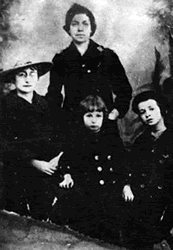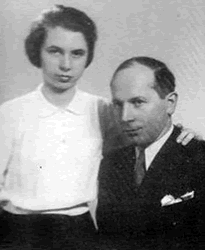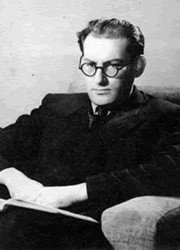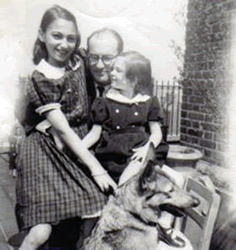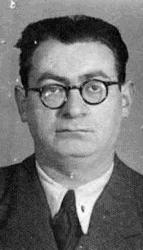JULIUSZ KATZ-SUCHY, (1912–1971), Polish statesman. Born in Warsaw, Katz-Suchy joined the illegal Polish Communist Party and was the editor of several socialist publications between 1934 and 1938. He was forced to leave Poland in 1938 and made his way via Czechoslovakia to England. Katz-Suchy was the representative of the Polish Press Agency in London from 1940 to 1945 and after the war became press attaché at the Polish embassy there. Later he became department director of the Polish Foreign Ministry. From 1946 to 1951 and from 1953 to 1954 he was Poland's delegate to the United Nations. Subsequently he was Poland's representative to the European Economic Commission, representative to the International Conference of Atomic Energy (1955), and ambassador to India (1957–62). He was also director of the Polish Institute for International Affairs, and after his return from India, professor of international law at the University of Warsaw. During the antisemitic campaign in Poland following the *Six-Day War of 1967 he was removed from that position. In 1970 he went to Denmark to teach at the University of Aarhus. His brother was Benzion *Katz, rector of Tel Aviv University.
KATZ (Benshalom), BENZION (1907-1968), Hebrew trans- lator, literary critic, and educator. He was the brother of Juliusz
Katz-Suchy Born in Sanok, Galicia, he studied at the Univer-
sity of Cracow, taught Hebrew language there (1929-39), and lectured at the Warsaw Institute of Jewish Studies (1937-39). In 1940 he immigrated to Palestine, and from 1941 to 1963 was director of the Jewish Agency's Youth and He-Halutz Depart- ment. He also lectured on classical literature at the Tel Aviv University, where he was appointed rector in 1964. Katz's books include Mishkalav shel H.N. Bialik ("Metrics in Bialik's Poetry," 1942); Ha-Sifrut ha-Ivrit Bein Shetei Milhamot Olam (1943; Hebrew Literature between the Two World Wars y 1953); Shekibt Yerushalayim ("Jerusalem Sunsets," poems, 1965); and Orhot Yezirah ("Creative Paths," literary essays, 1966). He translated into Hebrew selections from the Persian epic Shah- nama by Firdausi and the Rubdiydt of Omar Khayyam, ...
http://aya-katz.hubpages.com/hub/Chocolate-Under-Communism
Chocolate Under Communism80
rate or flag this page
By Aya Katz
The Katz children-- 1915
This is the story of what happens to chocolate when a country goes communist. It is also a story about my family -- or at least the left wing of my family: my somewhat distant relatives who had a fling with communism. It is about idealism and disillusionment. It's about what happens when you try to separate production from distribution. It is a timely story and a cautionary tale.
This is also the story of Irena Penzik, known affectionately in family circles as Renusha, and about her favorite uncle, Julek, -- known to the whole world as Juliusz Katz-Suchy. The things I will tell you about happened long, long ago, and far, far away in a country known as Poland in the middle of the last century. I was not there. I had not even been born when the events happened. My main source of Information, besides some family gossip, is Irena's own book, ASHES TO THE TASTE.
From left to right: Tonka, Judek (Julek in Polish) and Benzion
Irena and her father
This photo was taken in 1939
In the top picture are seated, from left to right, my great aunt Tonka, my great Uncle Juliusz, and my grandfather, Benzion Katz. Standing behind them, according to my grandfather's notation on the back of the photo, is the maid. The photo was taken in Vienna, Austria in 1915.
The people in the photo were Polish Jews who had taken refuge in Austria during World War I, and who returned to Poland as soon as it was over. My great grandfather was a merchant. He had three children. Tonka, the eldest, was fifteen years older than my grandfather Benzion (1907-1968). My grandfather was five years older than my great uncle. Shortly after Juliusz (1912-1971) was born, their mother die.
The Pull of Poland
To understand why Irena, who was now a legal resident of the United States and married to an American citizen, would want to return to Poland, you have to understand the deep feelings of homesickness that every Pole experiences at being separated from his homeland.
Poland is a country with a long history, rich in culture and tradition, and beloved of all who have grown up in its atmosphere. Did you know that Poland is unique in having had an elected king? Back when Poland was a monarchy, its kings were elected, rather than born to office. I know this, because my grandparents never stopped talking about Poland, even years after they had helped to establish the State of Israel.
Poland was also a country where ethnic identity determined social status, and where anti-semitism was rampant. My grandfather and his younger brother were both conscious of this, and each decided to resolve the problem in a different way. My grandfather became a Zionist, and his solution was to create a place where he need never be the outsider, by reviving the ancient language and culture of the Land of Israel. In making this dream a reality, it helped that he was a philologist and spoke Hebrew fluently. My great uncle Juliusz believed that under communism all the racial prejudice would be eradicated, and he chose to remain a Pole. He believed that by destroying the established order, he would bring about a Poland that treated everyone alike.
In some ways, Poland exerted an influence, both for good and for ill, on those who left it, as well as those who stayed. When my grandmother Klara, Benzion's wife, died decades after her husband, a shiny copper plate in leather case lined with velvet was found in her Tel Aviv apartment. It featured the seal of Poland and the words: "A thousand years of Polish rule."
My grandparents left Poland in 1939, with only the clothes on their backs. The few photographs and mementos they took had to be smuggled in their clothes. There could not have been room for such an item. How did they acquire it? And why did my grandmother, who hated clutter and was notorious for throwing valuable objects away, hold onto this?
Clearly, pro-Polish sentiment never died.
Katz-Suchy as a young man
Uncle Julek the Idealist
Irena remembered her uncle from her childhood as a man she looked up to and admired. Juliusz as a young man was lean and handsome, idealistic and generous. He joined the Polish communists as a teenager, when doing so subjected him to being arrested and even imprisoned. Despite his middle class background, he identified with the poor and downtrodden, and he was willing to sacrifice everything to make the dream of "social equality" come true.
"Julek was always the kind of boy who would 'give you the shirt off his back.' He liked our house better than his own, and when I was little he spent much of his time with me. It was he who brought me my first dog, and Kiza, the cat, and I came to associate him with funny stories, lovely songs and wonderful times. ... His first political arrest came just before graduation from the gymnasium, but the affair was somehow hushed up and he went to Cracow University to study law. His second arrest came soon afterward, then came the trial and conviction -- five years imprisonment for Communist activity at the university." (ASHES TO THE TASTE, p.17) . After two and a half years in prison, Julek was released when amnesty for politcal prisoners was declared. He came home "still holding firmly to his convictions, but ill with tuberculosis." But the release was short-lived, and soon the police came and took him back again, this time to the newly created concentration camp of Bereza Kartuska, in a muddy area of eastern Poland.
Irena writes: "We thought we might never see him again. But in the evening of a February day, twenty-three months later, the doorbell rang and I opened the door to a tall familiar figure in a long trench coat... Julek had come back. ...No university would accept a boy with hisp ast and no one would give him a job....He could talk only of the tortures, the blood and the murder of the camp, and of the men who had stayed behind." (ASHES TO THE TASTE, P.18).The family sent him to recuperate in the Tatra Mountains, but when his father died, and Julek came down to attend the funeral, he was again arrested.
Irena describes what happened next: "At the police station, my father extracted the information from the captain that Julek was again being sent away -- to the concentration camp. That night, convinced that he would never return from the camp, he managed to escape from the police station in the midst of a raging storm. The good people of a neighboring village sheltered him, and later a friend drove him to a border town... From there a guide took him across the "green border" into free Chekoslovakia..."
Katz-Suchy with his daughters, Erika & Barbara New York, 1951
Uncle Julek once in Power
The last time Irena saw Julek before the war, she was a young girl not yet fully grown, and he was a member of the communist underground, bloodied but unbroken. When she saw him again, the communists were in power, and he was a successful politician. He had changed considerably. Irena barely recognized him.
"It had been nine years since I last saw my Uncle Julek. When notified of his arrival, my husband and I rushed to see him. The man who opened the door of his hotel room ... looked like a total stranger. He seemed older than his years, stout, sloppy and not particularly attractive. There was nothing to remind me of the tender hero of my childhood, and I wondered for a moment if I hadn't made a mistake. (ASHES TO THE TASTE, p. 50.)
ASHES TO THE TASTE
(To be sung to the tune of Disney'sBeauty and the Beast)
Since the dawn of time,
It has seemed unfair
That some folks are poor,
Some have so much more,
Can't we all just share?
Listen to this tale,
Those who long for change,
Tale of West and East,
Julek and his niece,
Who became estranged.
"Uncle Julek's changed...
"Can this be his face?!"
"Shall I tell my niece,
Not to go back East?
--No! I'll be disgraced."
Prematurely aged,
Hero of her youth,
Doesn't dare to tell
All has gone to hell,
Doesn't share the truth.
When you spread the wealth
All will go to waste,
Nothing left to eat,
Even Wedel's sweets
Ashes to the taste.
Nothing left to eat,
Even Wedel's sweets,
Ashes to the taste.
(c) 2008 Aya Katz
Whose Delicatessen? - TIME
[OPEN_P]On Manhattan's clangorous Sixth Avenue, a block away from verdant Central Park, stands the garlic-scented Chambers Restaurant and Delicatessen. On one side of the establishment is a...
Wedel Chocolates under Communism
The Polish diplomats abroad never ceased to talk about how well things were going at home. They complained that they couldn't stand the degenerate life of the West. All the while, they were stuffing their suticases with luxury goods from the West, things like condensed milk, canned fruits and vegetables, sardine tins, Swiss chocolates, over the counter drugs and cosmetics, electrical appliances, underwear, soap and toilet paper. Irena, who accompanied her uncle on a world tour prior to her home leave, saw all of this, but she didn't quite understand what she was seeing. Her uncle did not enlighten her. It was only when they were in the Geneva airport, and she was bound for Warsaw, that he turned to her and said: "Don't worry about anything. Don't take things to heart. Everything will turn out all right." Irena was dismayed at this sudden solicitude. Up until this point, she had not known that there was anything to worry about.
Irena boarded the plane without her uncle, who would be returning to Poland later. For the beginning of her visit, she would be staying with her uncle's family, who had preceded him to Warsaw from New York.The apartment where Julek's wife, Lilka, and their two children, Erika and Barbara, lived was considered a luxurious one by Polish standards, although it only consisted of two bedrooms, a living room, one bathroom and a kitchen. "In contrast with the mild climate of Geneva, which I had left only a few days before, Warsaw seemed quite cold. Neverheless, the apartment was completely unheated. In fact, despite the growing cold, there was not to be any heat in that or any other Warsaw apartment for the six weeks I remained in Poland. There was no hot water available in this choice block of houses, except for several hours on Saturday afternoons, when people took their weekly baths." (ASHES TO THE TASTE p.33). The Katz-Suchys had a brand new refrigerator they had had shipped from the states. The refrigerator was empty. There was no food.
The Katz-Suchys, as important party members, had a housekeeper. Her chief job was to stand in line for hours on end in the empty stores and try to find some food. People who were not fortunate enough to have a housekeeper had to stand in line for non-existent food themselves, after a full day of work.
There was no way to properly clean clothes, and no new clothes to buy, so people wore the same outfits over and over again, worn and covered with stains. Supposedly there had been a "cultural revival" under communism, but attending a play or going to the movies was unbearable, not only because of the trite communist propaganda, but because of the stench of all the unwashed bodies gathered at close quarters in the same unventilated hall.
An edict requiring the "discipline of labor" was in force, which meant that a system was put in place to try to ensure that all worked long hours and remained productive. People were expected to meet daily quotas, and it was all very stressful, but despite this, ( or maybe because of it!), the local goods were of substandard quality, and the economy was in shambles.
Staple foods like meat, eggs, milk and butter were completely unavailable. There was enough bread to be had, however, and there were sugary cakes, because Poland had a surplus of beet sugar left over from before the war.
No wonder Uncle Julek had gained weight -- he had been on a high carb diet. All of Poland was on a high carb diet! People who had once had sleek, lean bodies began to look like sacks of potatoes on this dietary regimen. In Poland in 1951, no one needed to hear about the Atkins diet in order to realize what an absence of dietary fat does to the body.
Julek's wife Lilka was a medical doctor, but she could not find a job, despite a shortage of doctors, because of party wrangling. She finally managed to get a job at a creche (a day care center), taking care of children. Her charges were malnourished, sickly and had sores all over their bodies.
This was life in the workers' paradise. People whispered, because they dared not say it out loud, that things had been better under Nazi occupation.
When Julek returned from Switzerland, he brought home some treats. The children pounced on the bananas and chocolates. The remaining chocolate, after the first day, was placed in a cabinet under lock and key, to be doled out to the family by Julek on a daily basis.
"Once or twice my uncle brought home a box of Wedel chocolates, a renouned name in prewar Poland. A state-owned factory now produced confectionary products under the same brand name. I nostalgically remembered the wonderful taste I associated with it. You can imagine my disappointment at seeing the chalky-looking candy and at the abonimable taste of this poor imitation of chocolate. I saw no reason for the bad quality of this product, except that there no longer seemed to be any pride involved in its making." (ASHES TO THE TASTE, p.80.)
Ashes to the Taste -- The Music Video
Bezion Katz
